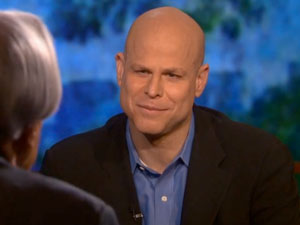Interns’ Favorite Articles of the Week (7/5/13) Interns’ Favorite Articles of the Week (7/5/13)
This week: revolution in Egypt, reproductive rights in DC, elections in South Korea and solidarity with Bangladeshi workers everywhere.
Jul 5, 2013 / StudentNation / StudentNation

The Dictionary of the Global War on You The Dictionary of the Global War on You
Definitions for a new age
Jul 2, 2013 / Tom Engelhardt

Selling Out for Sponsored Content? Selling Out for Sponsored Content?
Publishers of sponsored content are playing fast and loose with credibility, the ‘unique value proposition’ journalism has to offer.
Jul 1, 2013 / Michael Serazio

Greg Kaufmann: Low-Wage Work Is Far From Living-Wage Work Greg Kaufmann: Low-Wage Work Is Far From Living-Wage Work
The Nation's Greg Kaufmann joins Bill Moyers to explain why the need for food stamps is growing.
Jul 1, 2013 / Press Room

In Defense of Rachel Jeantel In Defense of Rachel Jeantel
MSNBC's Chris Hayes takes Jeantel's haters to task for their "willful" misunderstanding of a young, black woman's vernacular.
Jun 28, 2013 / Chris Hayes
Interns’ Favorite Articles of the Week (6/27/13) Interns’ Favorite Articles of the Week (6/27/13)
This week: Obama outlines an aggressive plan to address climate change, Egyptians brace for a second revolution and the Supreme Court erodes workers’ rights.
Jun 28, 2013 / StudentNation / StudentNation

Molon Labe! Molon Labe!
An arrest in Minnesota, a police tasering in New Hampshire, a July 4 march on Washington—and the angry-white-man efflorescence the media should be tracking.
Jun 27, 2013 / Rick Perlstein

Welcome to the (Don’t Be) Evil Empire Welcome to the (Don’t Be) Evil Empire
Google eats the world.
Jun 25, 2013 / Rebecca Solnit
‘Meet the Press’ Pundit With Financial Ties to NSA Misleadingly Slams Snowden ‘Meet the Press’ Pundit With Financial Ties to NSA Misleadingly Slams Snowden
On Meet the Press, ‘Republican strategist’ Mike Murphy attacked Edward Snowden’s decision to seek aslyum, yet failed to disclose his own financial ties to the surveillance industry...
Jun 24, 2013 / Lee Fang

Glenn Greenwald Is ‘Aiding and Abetting’ Democracy Glenn Greenwald Is ‘Aiding and Abetting’ Democracy
Historical (and contemporary) context went missing on Meet the Press.
Jun 24, 2013 / John Nichols
